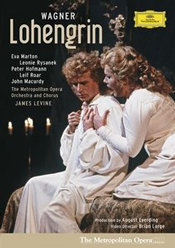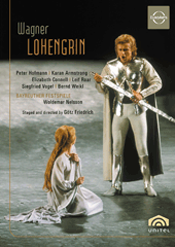Recently in Recordings
The Sixteen continues its exploration of Henry Purcell’s Welcome Songs for Charles II. As with Robert King’s pioneering Purcell series begun over thirty years ago for Hyperion, Harry Christophers is recording two Welcome Songs per disc.
In February this year, Albanian soprano Ermonela Jaho made a highly lauded debut recital at Wigmore Hall - a concert which both celebrated Opera Rara’s 50th anniversary and honoured the career of the Italian soprano Rosina Storchio (1872-1945), the star of verismo who created the title roles in Leoncavallo’s La bohème and Zazà, Mascagni’s Lodoletta and Puccini’s Madama Butterfly.
Collapsology. Or, perhaps we should use the French word ‘Collapsologie’ because this is a transdisciplinary idea pretty much advocated by a series of French theorists - and apparently, mostly French theorists. It in essence focuses on the imminent collapse of modern society and all its layers - a series of escalating crises on a global scale: environmental, economic, geopolitical, governmental; the list is extensive.
Amongst an avalanche of new Mahler recordings appearing at the moment (Das Lied von der Erde seems to be the most favoured, with three) this 1991 Mahler Second from the 2nd Kassel MahlerFest is one of the more interesting releases.
If there is one myth, it seems believed by some people today, that probably needs shattering it is that post-war recordings or performances of Wagner operas were always of exceptional quality. This 1949 Hamburg Tristan und Isolde is one of those recordings - though quite who is to blame for its many problems takes quite some unearthing.
The voices of six women composers are celebrated by baritone Jeremy Huw Williams and soprano Yunah Lee on this characteristically ambitious and valuable release by Lontano Records Ltd (Lorelt).
As Paul Spicer, conductor of the Royal Birmingham Conservatoire Chamber Choir, observes, the worship of the Blessed Virgin Mary is as ‘old as Christianity itself’, and programmes devoted to settings of texts which venerate the Virgin Mary are commonplace.
Ethel Smyth’s last large-scale work, written in 1930 by the then 72-year-old composer who was increasingly afflicted and depressed by her worsening deafness, was The Prison – a ‘symphony’ for soprano and bass-baritone soloists, chorus and orchestra.
‘Hamilton Harty is Irish to the core, but he is not a musical nationalist.’
‘After silence, that which comes closest to expressing the inexpressible is music.’ Aldous Huxley’s words have inspired VOCES8’s new disc, After Silence, a ‘double album in four chapters’ which marks the ensemble’s 15th anniversary.
A song-cycle is a narrative, a journey, not necessarily literal or linear, but one which carries performer and listener through time and across an emotional terrain. Through complement and contrast, poetry and music crystallise diverse sentiments and somehow cohere variability into an aesthetic unity.
One of the nicest things about being lucky enough to enjoy opera, music and theatre, week in week out, in London’s fringe theatres, music conservatoires, and international concert halls and opera houses, is the opportunity to encounter striking performances by young talented musicians and then watch with pleasure as they fulfil those sparks of promise.
“It’s forbidden, and where’s the art in that?”
Dublin-born John F. Larchet (1884-1967) might well be described as the father of post-Independence Irish music, given the immense influenced that he had upon Irish musical life during the first half of the 20th century - as a composer, musician, administrator and teacher.
The English Civil War is raging. The daughter of a Puritan aristocrat has fallen in love with the son of a Royalist supporter of the House of Stuart. Will love triumph over political expediency and religious dogma?
Beethoven Symphony no 9 (the Choral Symphony) in D minor, Op. 125, and the Choral Fantasy in C minor, Op. 80 with soloist Kristian Bezuidenhout, Pablo Heras-Casado conducting the Freiburger Barockorchester, new from Harmonia Mundi.
A Louise Brooks look-a-like, in bobbed black wig and floor-sweeping leather trench-coat, cheeks purple-rouged and eyes shadowed in black, Barbara Hannigan issues taut gestures which elicit fire-cracker punch from the Mahler Chamber Orchestra.
‘Signor Piatti in a fantasia on themes from Beatrice di Tenda had also his triumph. Difficulties, declared to be insuperable, were vanquished by him with consummate skill and precision. He certainly is amazing, his tone magnificent, and his style excellent. His resources appear to be inexhaustible; and altogether for variety, it is the greatest specimen of violoncello playing that has been heard in this country.’
Baritone Roderick Williams seems to have been a pretty constant ‘companion’, on my laptop screen and through my stereo speakers, during the past few ‘lock-down’ months.
Melodramas can be a difficult genre for composers. Before Richard Strauss’s Enoch Arden the concept of the melodrama was its compact size – Weber’s Wolf’s Glen scene in Der Freischütz, Georg Benda’s Ariadne auf Naxos and Medea or even Leonore’s grave scene in Beethoven’s Fidelio.
Recordings

19 Jan 2007
WAGNER: Lohengrin
These recordings prove decisively a well-known thesis: more or less realistic productions always age better than so called innovative modern productions which often only aggrandize the clichés of the time of their conception if one views them a few decades after their première.
This doesn’t mean that ‘the next swan’ puts in an appearance in the Everding production at the Met ( brilliant lighting does the job) but the designs and costumes transfer us to Antwerp in the early middle ages. Exact dating of the opera is even possible: between 919 and 936, as those were the years Heinrich der Vögler was German king (though to be honest, the duchy of Brabant, where this reviewer is living, only got its name some 150 years later). Anyway, the Met production’s sets and costumes are roughly apt for the period and Elsa at least, wears some robes fit for a duke’s daughter instead of the same ugly colourless night gown Friedrich and his team thought fit for the Bayreuth production. Peter Hofmann too looks far better in his fine Met costumes than in the now hopelessly dated half knight/ half astronaut plastic (or is it metal ?) he has to wear in Germany. Friedrich probably had some ‘democratic’ problems with the king being graciously attended to, and so he has the singer seated on the steps of the stairs among all the other nobles. At the Met the king gets his throne during his hearing and the scene all at once doesn’t look ridiculous anymore. Time and again one sighs at Friedrich’s solutions and with relief one returns to Everding.
The Bayreuth production, however, has one distinct advantage over the Met’s. Four years and a lot of heavy Wagner roles later have taken their toll on Hofmann’s voice. The shine of it has somewhat disappeared and there is more strain in the high register. Granted, there is more refinement and some fine piannismi phrasing too at the Met, but these don’t quite compensate for the loss of vocal strength. This doesn’t mean the Bayreuth performance is perfect. After all this is Wagner’s most Italian opera and the recordings of De Lucia and Pertile prove what an Italian tenor could do with it. I sorely miss the ‘morbidezza’, the sweetness and sensuality, a good tenor can bring to the role, and next to Sandor Konya, Hofmann pales. Leif Roar too has not improved in the few years between the two recordings. In Bayreuth he is an impressive Telramund and he sings with the dark-burnished sound apt for the role. At the Met his singing is often crude and soon becomes barking before degenerating into shouting. Siegfried Vogel too at Bayreuth is vocally more impressive than the Met’s John Macurdy, who has some flat notes. Both Bernd Weikl and Anthony Raffell (a name unknown to me) sing a sturdy and strong Heerrufer. I don’t think nowadays both houses are still able to cast this small role with such outstanding talent.
On the ladies front, however, the Met wins hands down. Karan Armstrong is rather passive and colourless compared with the bigger and more creamy sound of Eva Marton. Elisabeth Connell is a South-African soprano and therefore can more easily cope with the high tessitura of the role but she is no match for the acting and the rich secure top of Leonie Rysanek, stunning at age 60.Woldemar Nelsson is a solid Kapellmeister but already at the prelude there is an aura of magic lacking. James Levine, with his long experience in German and especially Italian opera, immediately plunges into the mystery of the score and keeps it up till the end of the opera. The Met’s orchestra and chorus too are on the same level as the Bayreuth phalanx. As often one wishes one could take the best of these two worlds but in the end Levine, Marton and the production give the Met’s performance a slight edge.
Jan Neckers
 |  |
| Click image to buy | Click image to buy |

